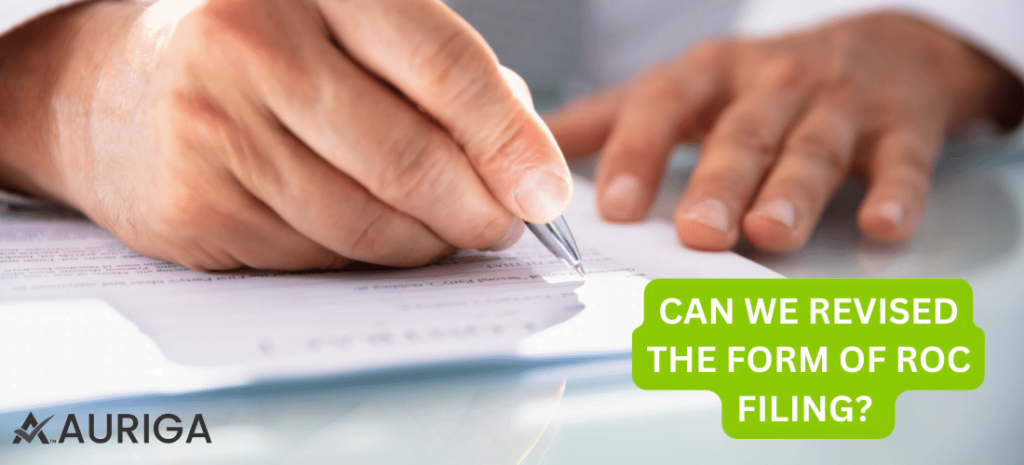CAN WE REVISED THE FORM OF ROC FILLING?
Introduction
Toggle
CAN WE REVISED THE FORM OF ROC FILLING?
INTRODUCTION
Yes, you can revise the form of ROC filing if there is an error or omission in the form. However, you can only revise the form once. If you need to revise the form again, you will need to file a fresh form.
TO REVISE A ROC FORM, YOU NEED TO FOLLOW THESE STEPS:
- File an application for revision of the form with the ROC.
- The application must be accompanied by an affidavit stating the reason for the revision.
- The ROC will review the application and if it is satisfied with the reason for the revision, it will approve the application.
- Once the application is approved, you can file the revised form with the ROC.
The ROC may charge a fee for revising a form. The fee will vary depending on the type of form that you are revising.
It is important to note that you cannot revise a form if the error or omission is material. A material error or omission is an error or omission that could have a significant impact on the information that is contained in the form.
If you are unsure whether an error or omission is material, you should consult with a lawyer.
Here are some examples of errors or omissions that may be considered material:
- An incorrect name or address of a director or shareholder.
- An incorrect financial statement.
- A missing signature.
If you make a material error or omission in a ROC form, you may need to file a fresh form. This could result in late filing penalties, so it is important to be careful when filling out ROC forms.
ADVANTAGES
THERE ARE A FEW ADVANTAGES TO REVISING THE FORM INSTEAD OF FILING A FRESH FORM:
- It is quicker and easier – Revising a form is generally quicker and easier than filing a fresh form. This is because you do not need to gather all of the supporting documents again.
- It is cheaper – The ROC may charge a fee for revising a form, but it is typically less than the fee for filing a fresh form.
- It is less likely to lead to penalties – If you revise a form, the ROC is less likely to impose penalties for late filing. This is because the ROC will be aware that you were trying to correct an error or omission.
DISADVANTAGES
THERE ARE ALSO A FEW DISADVANTAGES TO REVISING THE FORM OF ROC FILING:
- You may need to get the approval of the ROC – The ROC may require you to get its approval before you can revise a form. This can add to the time and complexity of the process.
- You may not be able to revise the form if the error or omission is material – As mentioned earlier, a material error or omission is an error or omission that could have a significant impact on the information that is contained in the form. If the error or omission is material, you may need to file a fresh form.
Ultimately, the decision of whether to revise a form of ROC filing or to file a fresh form will depend on the specific circumstances of your case. If the error or omission is minor, you may be able to revise the form without any problems. However, if the error or omission is material, you may need to file a fresh form.
CONCLUSION
The decision of whether to revise the form of ROC filing or to file a fresh form will depend on the specific circumstances of your case. If you are unsure of what to do, you should consult with a lawyer or a chartered accountant.



